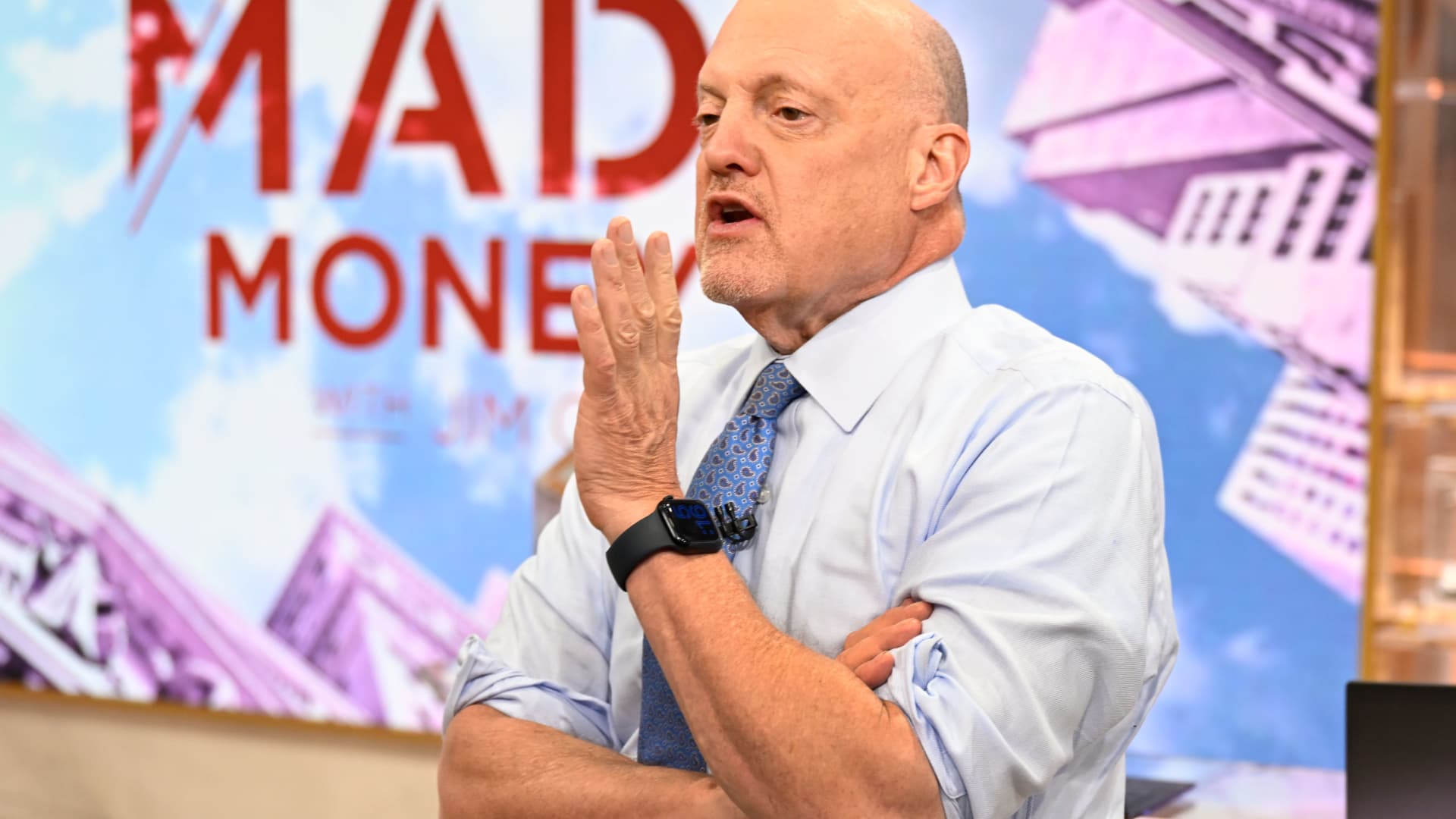
CNBC’s Jim Cramer said on Tuesday that potential 20% tariffs on all U.S. imports would hurt the economy and fail to solve the problems President Donald Trump is trying to address with the duties.
Although Trump’s exact tariff plans remain unknown ahead of their expected announcement on Wednesday — what Trump has called “liberation day” — White House aides have drafted a proposal to slap a roughly 20% tariff on most imports to the U.S., The Washington Post reported Tuesday.
“Speaking as someone who’s not a fan of free trade, I have to be honest here: A 20% across-the-board tariff on almost all imports, that would be horrendous for the economy,” Cramer said.
Cramer said he sympathizes with Trump’s intention of protecting domestic industries, but Americans and the economy will suffer as a result of the tariffs, he said. He listed five problems with the proposed tariffs.
First, U.S. manufacturing is unlikely to boom again, Cramer said, adding that the U.S. has transitioned to a service economy. Second, Cramer said, similar tariffs have historically harmed the economy. He pointed to the Smoot-Hawley tariffs in 1930 that contributed to the Great Depression.
Third, Cramer said it’s unclear who will collect the tariffs, and how. The immigration and customs officials who would usually handle tariffs are wrapped up in immigration enforcement right now, he noted.
Fourth, tariffs on Canadian goods are especially misplaced, Cramer said. Accusations that Canada is a major player in the fentanyl trade are unfounded, and resources like Canadian crude oil and wood are important to the U.S. economy, he said.
“Until a few months ago, everybody liked Canada. Let’s hope they don’t retaliate with lumber, or else housing prices will go up as much as auto prices,” Cramer said.
Finally, Cramer said that most Americans care more about inflation than tariffs. Worries around rising prices helped elect Trump to a second term, but he’s misreading the country’s mood by pushing for inflationary policies, Cramer said.
“As much as I rail against the devil’s bargain that gives our country the cheap stuff at the cost of domestic jobs, cheap stuff is what America wanted,” Cramer said. “Sure, voters also wanted an angry president, but they wanted him to direct that anger at retailers and their suppliers who refuse to roll back prices, while turning on the charm toward those who gave us lower prices.”






